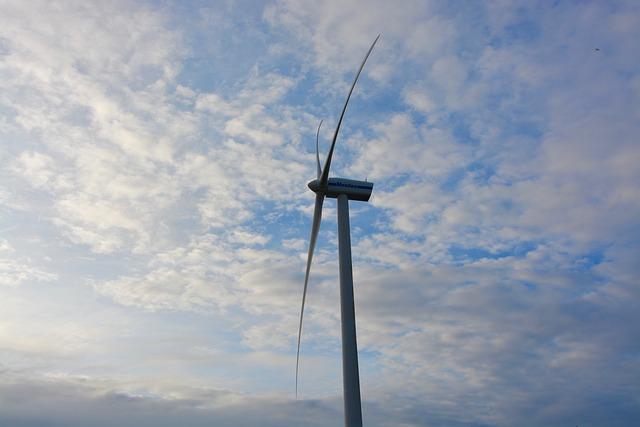In a notable boost to regional trade and infrastructure, the African Development Bank (AfDB) has approved a loan of EUR 330 million aimed at enhancing the performance of the vital Douala-Ndjamena economic corridor. This initiative represents a critical step forward in improving connectivity and economic prospects for cameroon and its neighboring countries, notably Chad. Spanning crucial transportation routes that facilitate commerce and movement, the Douala-Ndjamena corridor is essential for stimulating economic activity, reducing logistical costs, and enhancing access to markets. With this funding,the AfDB seeks not onyl to upgrade infrastructure but also to foster sustainable development in the region,promising to bolster economic growth and improve the livelihoods of local communities. As the project unfolds, it is indeed poised to become a cornerstone of integration efforts across Central Africa, highlighting the importance of multilateral cooperation in addressing the challenges faced by landlocked nations.
Cameroon’s Economic Ambitions Boosted by African Development bank Loan
Cameroon is set to enhance its economic landscape significantly, thanks to a substantial loan of EUR 330 million from the African Development Bank. This financing will primarily focus on the improvement and performance of the Douala-Ndjamena economic corridor, a critical route that connects the country’s bustling economic hub, Douala, to N’Djamena, the capital of chad.The project aims to facilitate trade and regional integration by upgrading infrastructure, which will not only boost local economies but also promote cross-border commerce.
The funds will be allocated towards several key initiatives, including:
- Road and Transport Infrastructure: Upgrading existing roads to enhance connectivity.
- Logistics and Trade Facilitation: Implementing systems to streamline customs and reduce delays.
- Sustainable Development Projects: Encouraging eco-friendly practices in the transport sector.
- Capacity Building: Training professionals to manage the corridor efficiently.
This strategic investment aligns with Cameroon’s broader economic ambitions,laying the groundwork for future growth and integration into the regional market,ultimately enhancing opportunities for businesses and citizens alike.

Enhancing Infrastructure: Key Improvements for the Douala-Ndjamena Corridor
The recent EUR 330 million loan from the African Development Bank is poised to significantly enhance the Douala-Ndjamena corridor, a vital artery for trade and economic development in Central Africa. Key improvements to be undertaken include:
- Road Rehabilitation: Upgrading road surfaces and ensuring proper drainage systems to reduce travel time and vehicle maintenance costs.
- Bridge Construction: Developing new bridges and refurbishing existing ones to facilitate smoother transit for heavy cargo.
- Logistics Enhancement: Establishing multifunctional logistics hubs to streamline goods handling and distribution.
- Safety Measures: Implementing traffic management solutions and installing warning systems to increase safety for all users of this corridor.
To strategically maximize the investments made through this loan, a complete implementation plan has been introduced.This includes:
| Phase | Expected Outcomes | Timeline |
|---|---|---|
| Phase 1: Assessment | Identify key infrastructure bottlenecks | 6 months |
| Phase 2: Implementation | Complete road and bridge upgrades | 18 months |
| Phase 3: Evaluation | Monitor performance and make adjustments | 6 months |
this structured approach ensures not only timely execution but also the sustainability of improvements, paving the way for an economically robust corridor that enhances trade between Cameroon and Chad.

Impact on Trade and Commerce: How the Loan Will Benefit Regional Economies
The loan of EUR 330 million from the african Development Bank is set to significantly enhance the trade and commerce landscape along the Douala-Ndjamena economic corridor. This vital infrastructure project aims to not only improve road connectivity but also facilitate faster transit times and lower transportation costs for goods traveling between Cameroon and Chad. With improved logistics, businesses will be able to reach wider markets, thus creating a more competitive environment that encourages investment and stimulates local economies. This,in turn,will open doors for small and medium-sized enterprises (SMEs),which are the backbone of regional economic growth.
The ripple effects of this financial infusion extend beyond just infrastructure development. As trade volumes increase, we can expect a surge in job opportunities, contributing to economic stability in the region. Additionally, the project is anticipated to enhance cross-border trade relations and foster greater collaboration among countries in the region. local farmers and artisans will benefit directly as they gain better access to markets, and consumers will enjoy a wider variety of products at competitive prices. To summarize the potential benefits:
| Impact | Description |
|---|---|
| Enhanced Connectivity | Reduces travel time and transportation costs. |
| Job Creation | Increases employment opportunities in logistics and trade. |
| Boosted SMEs | Enables small businesses to penetrate larger markets. |
| Improved Access to Goods | Consumers benefit from a wider range of products at better prices. |

Recommendations for Sustainable Development Along the Corridor
To maximize the benefits of the EUR 330 million loan aimed at enhancing the performance of the Douala-Ndjamena economic corridor, several sustainable development recommendations should be considered. These strategies should focus on integrating environmental, economic, and social dimensions in the planning and execution of projects along the corridor. Key recommendations include:
- Establishing Green Infrastructure: Invest in eco-friendly transport and logistics systems that minimize carbon footprints and promote energy efficiency.
- Community Engagement: Involve local communities in decision-making processes to ensure their needs and aspirations are respected and integrated into development initiatives.
- Biodiversity Protection: Implement measures to protect local ecosystems, including the establishment of green corridors that preserve flora and fauna.
- Capacity building: Foster local skills training programs that prepare communities for employment in sustainable development sectors, enhancing economic resilience.
Furthermore, to facilitate monitoring and evaluation of sustainable practices along the corridor, a transparent governance framework should be established. This framework could include:
| Aspect | Responsible Entity | Frequency of Reporting |
|---|---|---|
| Environmental Impact Assessments | Government Agencies | Annual |
| Community feedback Mechanisms | Local NGOs | Biannual |
| Economic Performance Monitoring | Research Institutions | Quarterly |
This comprehensive approach to sustainable development will not only improve the performance of the corridor but also ensure it serves as a catalyst for long-term socioeconomic benefits in the region.

Challenges Ahead: Addressing Potential Hurdles in Implementation
The successful implementation of the €330 million loan from the african Development Bank is fraught with several potential hurdles that must be proactively addressed. Political stability will play a critical role; fluctuations in the political landscape could delay essential project approvals and implementations. Moreover, infrastructure challenges such as inadequate existing road conditions and necessary upgrades to existing toll systems may impede progress. Stakeholder involvement will also be crucial; lack of engagement with local communities could lead to resistance or delays in project acceptance.
another significant concern is financial management. Ensuring that the funds are allocated effectively requires robust monitoring mechanisms to prevent mismanagement or corruption. Furthermore,capacity building must be prioritized; without skilled personnel,the initiatives to enhance the Douala-Ndjamena corridor may falter. Below are additional considerations that could pose challenges during the project’s rollout:
- Regulatory Issues: compliance with local laws and regulations could cause delays.
- Environmental Impact: Need for thorough assessments to mitigate potential ecological damage.
- Supply Chain Disruptions: Fluctuations in logistics can affect timelines and cost-effectiveness.

Future Outlook: Long-term Benefits of the Investment for Cameroon and Beyond
The investment of EUR 330 million by the African Development Bank to enhance the Douala-Ndjamena economic corridor is expected to yield significant long-term benefits not just for cameroon but for the entire region. This extensive project is poised to lead to improved infrastructure, which is crucial for boosting trade and commerce. Specifically, the anticipated outcomes of this investment include:
- Increased trade efficiency: Enhanced road and transport networks will reduce transit times and shipping costs.
- Job creation: The construction and subsequent operation of infrastructure will generate both direct and indirect employment opportunities.
- Regional integration: A fortified economic corridor will facilitate stronger ties among Central African nations, promoting cross-border commerce.
- Attraction of foreign investment: Improved infrastructure can draw the attention of international investors looking for stable economic environments.
Moreover, the project’s long-term implications extend beyond immediate economic gains. By supporting sustainable development goals, the investment emphasizes environmental stewardship while fostering economic growth. Critical elements include:
| benefit | Description |
|---|---|
| environmental sustainability | Incorporation of eco-friendly practices in infrastructure development minimizes environmental impact. |
| Community development | Strengthening local economies through infrastructure will uplift rural areas, improving living standards. |
This holistic approach ensures that the Douala-Ndjamena corridor not only enhances the performance of economic activities but also contributes to a resilient and sustainable future, creating lasting benefits that can be felt across multiple sectors and communities.

Wrapping Up
the EUR 330 million loan from the African Development Bank aimed at enhancing the performance of the Douala-Ndjamena economic corridor represents a significant step forward in regional development for Cameroon and its neighboring countries. This investment will not only facilitate trade and transport between these critical points, but it will also bolster infrastructure that can withstand the increasing demands of economic growth. As the project unfolds, stakeholders and citizens alike will be watching closely to see how this financial commitment translates into tangible improvements in connectivity, economic opportunities, and overall quality of life in the region. The African Development Bank’s ongoing involvement underscores its commitment to fostering sustainable development across Africa, ensuring that initiatives like this one are not only about immediate gains but also about building a resilient future for all.







